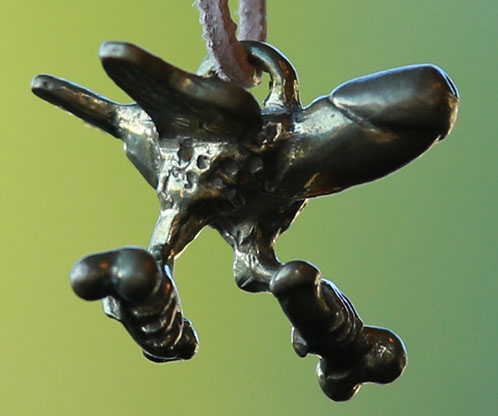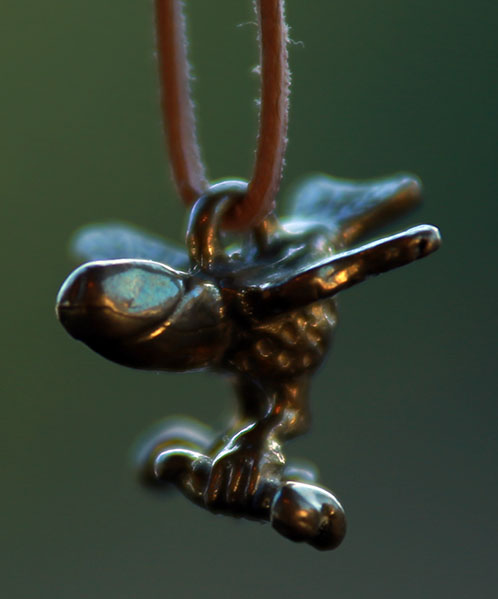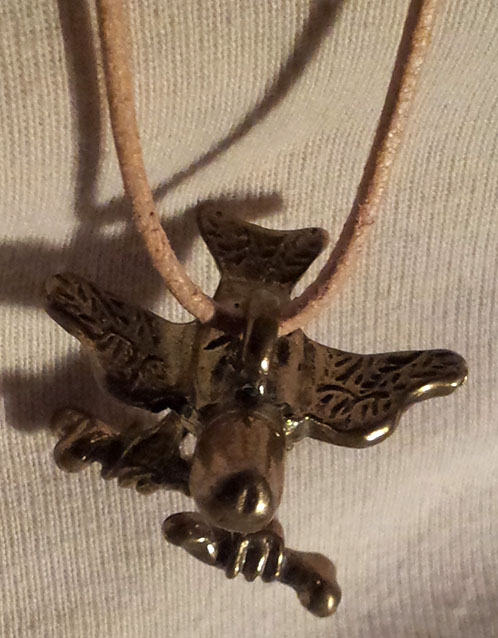Romans were superstitious. That’s a fact, proved in ancient literature, but also buy the many archaeological finds : charms, amulets, paintings, tablets and many more. One item in particular was really popular: the “fascinus”, a divine phallus supposed to bring luck or at least keep away the “evil eye”. You could find them everywhere: at the entrance of a house, around the neck of a legionary, in the pocket of a young girl. It was not seen like an erotic object, not at all, just a lucky charm for protection and fertility, or, better put, an item of apotropaic magic, charged to keep away the evil eye.
Fascinum

Winged Phallus

It’s a pendent, that I can use around my neck.

It’s really well crafted. It was made after a find from England, 1st century AD
Evil Eye
I had a lot of bad things these last months. Mainly with means of transportation, I don’t know why. So I did like our ancient ancestors, I bought a winged phallus, and I put it in my car! This fascinum will hopefully protect me from someone who wants me bad luck. We’ll see… In Pompeii, we could see a lot of them, I guess they weren’t strong enough. But their charms weren’t made by Erik K├Ânig like mine! It’s an eagle with a phallic head and two phalli in his claws.
 In Aciem
In Aciem
This fascinus is great, just the one i’ve been looking for. Do you have a website link or contact details for the guy who made it, would love to get one.
Thanks
John
Erik Konig : https://replik-online.de/en/index.html